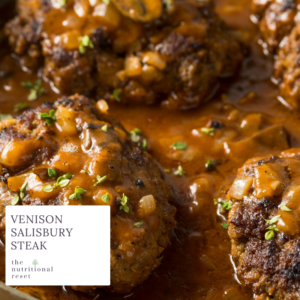 I will spare you the specifics but let’s just say that my September has been stressful with a capital S. And after just seven days of subsequent sleep deprivation, it sunk in how salient sleep is to recovery. In just one week of sub-par sleep, I injured myself doing the same run I’d done without incident only 7 days prior.
I will spare you the specifics but let’s just say that my September has been stressful with a capital S. And after just seven days of subsequent sleep deprivation, it sunk in how salient sleep is to recovery. In just one week of sub-par sleep, I injured myself doing the same run I’d done without incident only 7 days prior.
So the capital S in September stands not only for Stress and Sub-par Sleep, but also for Seriously piSSed off and Square one. As in, I’m back at square one rehabbing the same hamstring tendon injury I had at the same time last year, which took nearly Six months of Strenuous Strength Sessions (yes, all with a capital S) to set right.
But I’ll stop venting now and segue to the meat of this month’s post. Namely that S also stands for Salisbury Steak, specifically this Venison Salisbury Steak. Because nutrition, particularly sufficient protein, is as important to recovery as sleep. Click here for the recipe and then read on for more about how venison offers some superior nutritional benefits when you are hamstrung by stress (either literally or figuratively or, as in my case, both). And it’s pretty stress-free to sign up to my newsletter here so you’ll receive each month’s recipe straight to your inbox!
Superior nutrition for mental stress and injury recovery
- Rich in B vitamins (B6, B12, Niacin): B vitamins support the synthesis of neurotransmitters such as serotonin and dopamine, essential for regulating mood and reducing anxiety. They also support energy metabolism and help reduce fatigue during injury recovery.
- High in iron (highly bioavailable heme iron): Venison provides roughly 80% more iron than beef, and iron prevents iron-deficiency anemia, combats fatigue, and supports cognitive function under stress. It also enhances oxygen delivery to healing tissues, supporting cellular energy and regeneration.
- Good source of zinc: which is vital for immune health and modulating oxidative stress that worsens during mental strain.
- Omega-3 Fatty Acids: Yes, venison does contain omega-3 fatty acids. It typically has a higher omega-3 content than beef, roughly 5 times more. These contribute to brain health and reduce inflammation, helping improve mood and mental resilience.
- Complete high-quality protein: Protein provides amino acids critical for neurotransmitter production that improve the ability to cope with stress. And protein provides the building blocks for tissue repair, including collagen, crucial for tendon healing and muscle repair, aiding overall recovery.
- Low in saturated fat: Promotes cardiovascular health and reduces inflammation, facilitating faster healing.
Some trivia
Did you know raw broccoli contains about 81 to 91 milligrams of vitamin C per cup (90 to 100 grams)? This is around 90% of the daily recommended value of vitamin C? Vitamin C is vital for tendon healing. It directly influences the formation of strong collagen fibers and mitigates damaging inflammation, making it a key nutrient in dietary and rehabilitative strategies for tendinopathy and tendon injuries. Vitamin C also helps modulate cortisol, the primary stress hormone, preventing excessive cortisol levels that can impair immune function and mental health. So that’s why this Venison Salisbury Steak recipe serves up a side of steamed broccoli!
 Salisbury steak is named after Dr. James H. Salisbury (at right), a 19th-century physician who promoted a meat-centric diet, believing it to be the key to health and a cure for various ailments. He originally called the dish a “muscle pulp of beef,” made from ground beef and served as a simple, nutritious meal during and after the American Civil War. I can see why Salisbury Steak was the name that stuck. You can, of course, substitute more traditional ground beef in this recipe. But I hope you’ll be game to give venison a try!
Salisbury steak is named after Dr. James H. Salisbury (at right), a 19th-century physician who promoted a meat-centric diet, believing it to be the key to health and a cure for various ailments. He originally called the dish a “muscle pulp of beef,” made from ground beef and served as a simple, nutritious meal during and after the American Civil War. I can see why Salisbury Steak was the name that stuck. You can, of course, substitute more traditional ground beef in this recipe. But I hope you’ll be game to give venison a try!